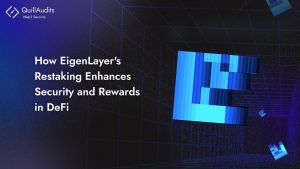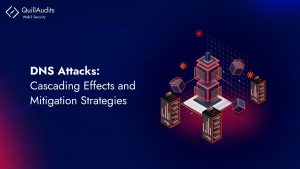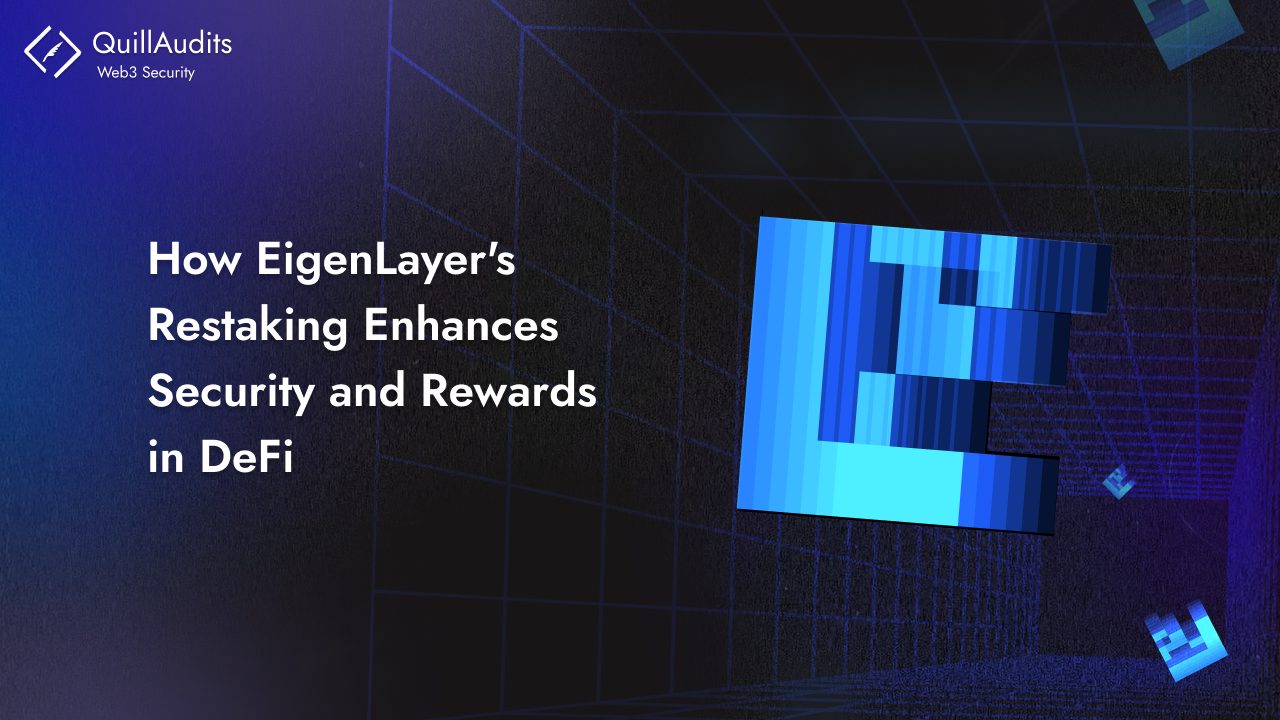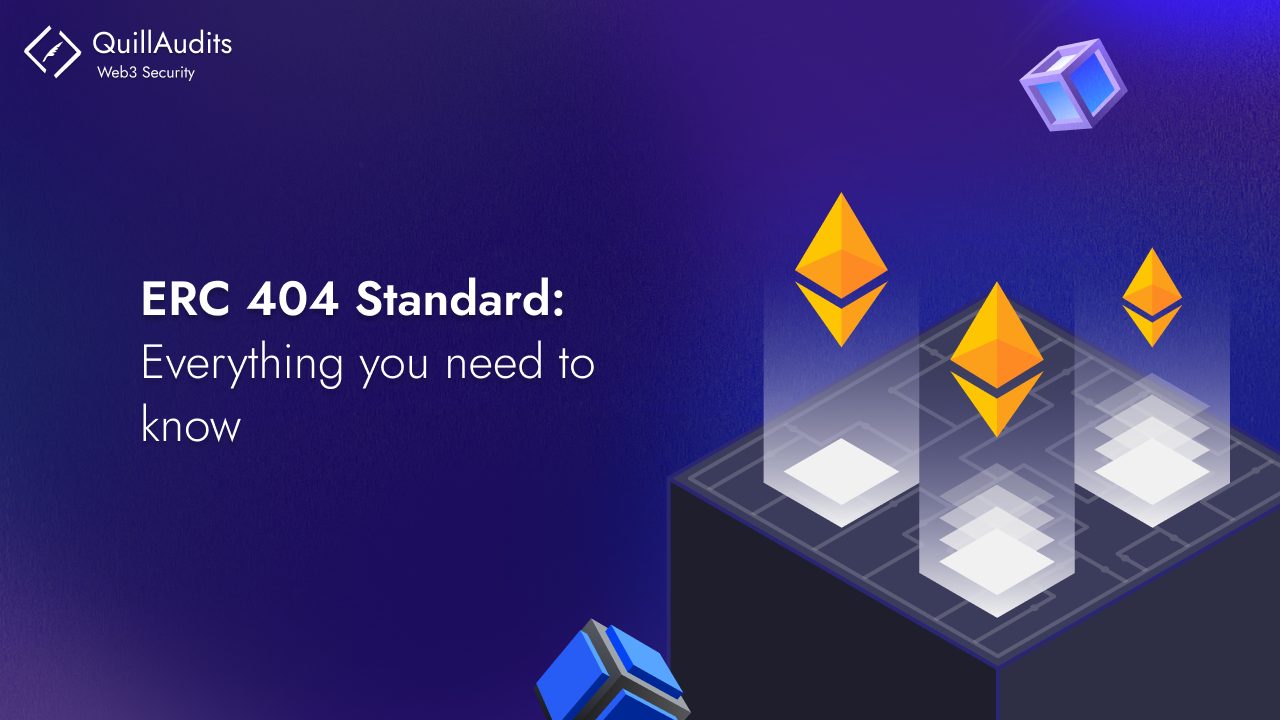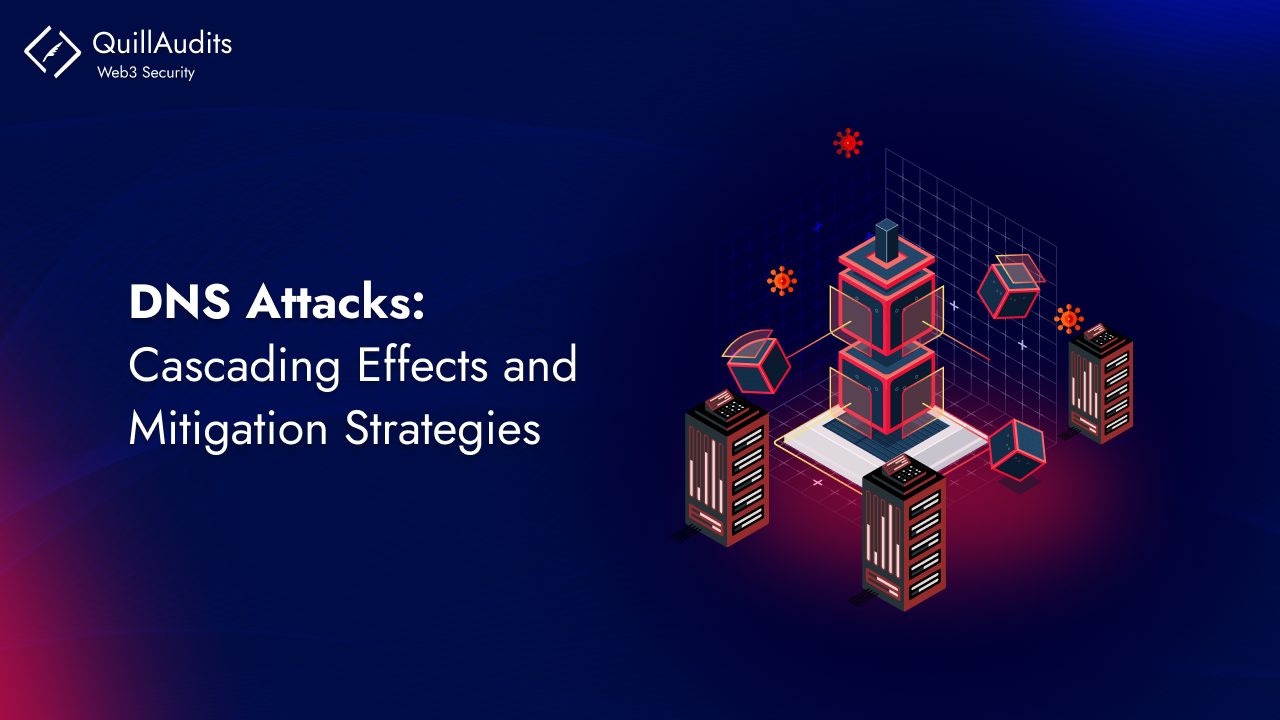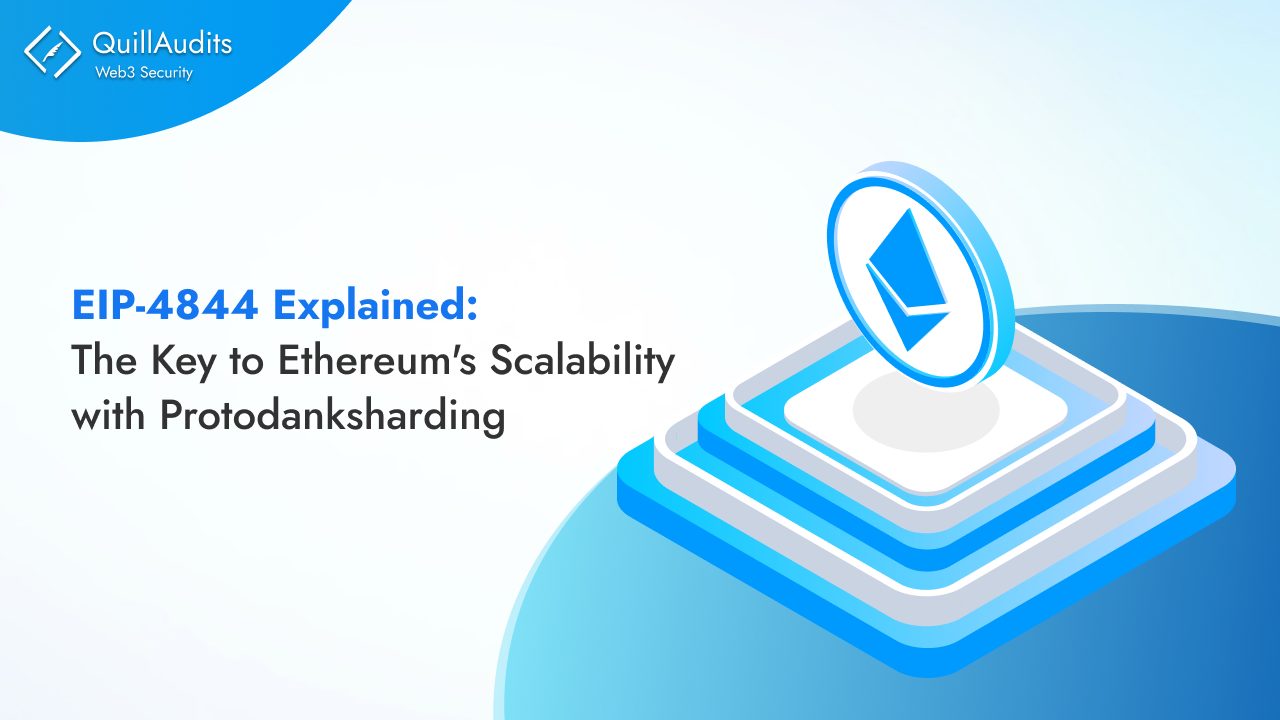It’s time to dig into the thrilling realm of smart contract security!
The data doesn’t lie. To put it bluntly, a whopping $13B in crypto assets was lost to web3 hacks due to smart contract vulnerabilities between 2016 and 2023.
If we take a closer look at these incidents, many of these hacks occur due to some glaring issues: bad logic, missing input validation, and ever-elusive smart contract flaws.
In other words, these gaps in smart contract security favour opportunistic attackers to find their way in.
We’re here to tell you that help is at hand – in the form of smart contract security tools. That’s the core theme of our article, and we’ll explore how these tools can help you securely build in web3.
A Holistic View of Smart Contract Security
To underscore the importance of auditing, let’s bring some compelling data into the spotlight. When we examine the security landscape of web3, over 51% of projects that fell victim to hacks hadn’t undergone any form of audit.
Auditing is the gold standard when it comes to smart contract security. It provides a robust defence against vulnerabilities, instilling trust in your projects.
Also, we can’t overlook the fact that manual audits can be time-consuming and costly. That’s where smart contract security tools come into play.
These tools aren’t a replacement for audits but offer an extra layer of protection by catching potential issues early in the development process. They act as vigilant gatekeepers, scanning your code for errors from the get-go.
With this blend of auditing and automated security tools, you can ensure a baseline level of protection during the deployment of your smart contracts.
However, web3 security is an ongoing process and requires continuous vigilance. That’s where these tools come in handy and can be leveraged anytime to ensure digital security.
So, in the next section, we’ll break down how smart contracts are assessed for vulnerabilities through various testing methods, leveraging a wide range of security tools.
Top 10 Smart Contract Security Tools And Testing Techniques
This section will dive into a comprehensive list of the tests and specific tools employed for smart contract assessments.
1. Static Analysis- is a security testing method that examines the source code of smart contracts without executing them. It aims to identify potential vulnerabilities, coding errors, and security issues.
Objective: Early detection of issues in the code without running the contract.
Security Testing Tools: Slither, MythX
Slither
Slither is a Python-based static analysis tool for smart contract analysis.
Features
- Detects vulnerabilities like reentrancy attacks, timestamp dependency issues, and integer overflow vulnerabilities.
- User-friendly and easy to use.
- Offers a quick analysis of code.
Shortcomings
- May produce some false positives.
- Cannot identify vulnerabilities resulting from interactions between different smart contracts (cross-contract calls).
MythX
MythX, a cloud-based static analysis tool, offers automatic scanning for vulnerabilities in Ethereum and other EVM-based smart contracts.
Features
- Provides a comprehensive report on vulnerabilities.
- Can be integrated with other tools.
- Easy to use.
Shortcomings
- Not an open-source tool.
- Cannot detect vulnerabilities involving interactions with other smart contracts.
- Cloud-based service, which some auditors and developers may prefer to avoid.
2. Dynamic Analysis- involves executing smart contracts with various inputs to identify runtime vulnerabilities and security weaknesses. It tests the contract’s behaviour during execution.
Objective: Reveals vulnerabilities that may only manifest during runtime and helps assess actual contract behaviour.
Security Testing Tools: Mythril, Securify v2.0
Mythril
Mythril is a static and dynamic analysis tool designed to detect vulnerabilities and weaknesses in Solidity code, including those involving contract interactions.
Features
- Detects a wide range of vulnerabilities, including reentrancy attacks and integer underflow/overflow.
- Combines both static and dynamic analysis, making it more versatile.
- User-friendly.
Shortcomings
- Slower analysis, especially with a high transaction count.
- May generate false positives in some cases.
Securify v2.0
Securify 2.0, a security scanner for Ethereum contracts, identifies various vulnerabilities, including state shadowing, uninitialized storage, locked ether, unrestricted delegatecall, and reentrancy attacks.
Features
- Can find up to 37 different smart contract vulnerabilities, including uninitialized storage, locked ether, unrestricted delegated call, etc.
- Provides detailed reports.
Shortcomings
- Supports only contracts with no imports(flat contracts).
- Uses an old version of Python.
- Installation process can be cumbersome.
3. Symbolic Execution- analyzes the smart contract by creating symbolic representations of variables, inputs, and paths through the code. It explores various execution paths to uncover potential security flaws.
Objective: Efficient at exploring multiple code paths and finding vulnerabilities that require complex interactions.
Security Testing Tools: Manticore
Manticore
Manticore is a symbolic execution tool for Ethereum smart contracts, Linux ELF binaries, and WASM modules. It explores possible states of a program, generates inputs, and detects errors.
Features
- The robust symbolic execution engine enables navigation through various execution paths, program states, and sequences of transactions, making it exceptionally effective in uncovering bugs.
- Flexible in analyzing different types of software such as Ethereum smart contracts, Linux ELF binaries, and WASM modules, broadening its scope for security assessment and bug detection.
Shortcomings
- Memory-intensive and slow for large or complex software.
- Potential dependency conflicts with other CLI tools.
4. Formal Verification- is a mathematical approach to proving the correctness of smart contracts based on predefined specifications. It uses logical reasoning to ensure the contract behaves as expected.
Objective: Rigorous mathematical proof of correctness, which can provide high confidence in the security of the contract.
Security Testing Tools: Solidity SMTChecker
Solidity SMTChecker
Solidity SMTChecker is a built-in formal verification module in the Solidity compiler. It uses SMT (Satisfiability Modulo Theories) and Horn solving to check for assertion failures within smart contracts.
Features
- Integrated with the Solidity compiler, requiring no complex configurations.
- Offers two model checking engines, Bounded Model Checker (BMC) and Constrained Horn Clauses (CHC).
- Checks for various issues, such as arithmetic underflow and overflow,
Shortcomings
- Limited coverage with BMC.
- High computational cost when using the CHC engine.
- An experimental feature.
5. Fuzz Testing- or fuzzing, involves injecting random or unexpected data into smart contracts to discover vulnerabilities or weak points that malicious actors could exploit.
Objective: Simulates real-world attack scenarios by testing contracts against various inputs.
Security Testing Tools: Echidna
Echidna
Echidna is designed with a unique blend of fuzzing and property-based testing capabilities, and it’s built using the Haskell programming language.
Features
- Echidna uses grammar-based fuzzing campaigns based on a contract ABI and falsifies user-defined predicates or Solidity assert statements.
- Echidna tests smart contracts based on predefined invariants and generates random sequences of contract calls to test against these invariants.
Shortcomings
- Echidna can be slow in detecting vulnerabilities in large contracts.
- Testing contracts heavily relying on external libraries may be challenging.
- Echidna’s support for the Vyper programming language is limited, affecting its scope.
6. Invariant Testing- aims to ensure that specific conditions or properties, such as token balances or state consistency, remain valid and unchanged during contract execution. Invariants are checked continuously and help prevent vulnerabilities.
Objective: focuses on verifying that certain invariants hold throughout the execution of a smart contract.
Security Testing Tools: Foundry Invariant testing, Dapptools
Foundry Invariant Testing
Foundry is a high-speed smart contract development tool constructed using the Rust programming language.
Features
- Foundry is known for its speed in smart contract development.
- It provides helpful cheat codes and customizations for more efficient testing, such as increasing the number of fuzz test runs.
- Supports handler-based testing for invariant tests that involve cross-contract interactions.
Shortcomings
In some cases, users may need to manually bound the range of fuzzed input numbers, as Foundry may not always choose the right input values.
Dapptools
Dapptools is a suite of Ethereum-focused CLI tools for building, testing, debugging, and deploying Solidity contracts.
Features
- Dapptools offers many testing options, including unit testing, fuzz testing, and invariant testing.
- It allows users to replay and debug failed tests, providing insight into contract execution and memory visualization.
Shortcomings
- Dapptools can be complex to use, and debugging information may be challenging to interpret.
- It lacks community support, making problem-solving more difficult.
- Dapptools might be slow to run, and its documentation is not comprehensive, which can hinder user experience.
7. Mutant Testing- is a proactive approach where changes are made to the code (mutants) to identify weaknesses in the contract’s logic. It helps to uncover vulnerabilities that traditional testing might miss.
Objective: It involves introducing mutations (small variations) in the smart contract’s code to check if they result in vulnerabilities or issues.
Security Testing Tools: SuMo
SuMo
SuMo is a mutation testing tool specifically designed for Solidity Smart Contracts. It primarily operates in the NodeJS environment and can be integrated into various development frameworks like Truffle, Hardhat, Brownie, and Foundry.
Features:
- It is versatile, offering support for Truffle, Hardhat, Brownie, and Foundry projects.
- SuMo boasts an impressive array of 25 Solidity-specific mutation operators tailored to the intricacies of the Solidity programming language.
- It can generate a significant amount of mutated code for testing. Also, it introduces unique features, including preflight, mutate and restore.
Shortcomings
- SuMo is intended to function as a development dependency within an npm project, and global usage is not fully supported.
- Might be slower in larger projects.
Combining these methods can significantly reduce the risk of vulnerabilities and enhance the reliability of blockchain applications.
Concluding Note
In summary, smart contracts possess subtle yet critical issues that make audits crucial, often requiring experienced professionals to unearth hidden flaws.
At QuillAudits, we’re committed to safeguarding your smart contracts, ensuring they stand resilient against potential threats.
Connect with our expert auditors today and experience the confidence of a secure blockchain future!


